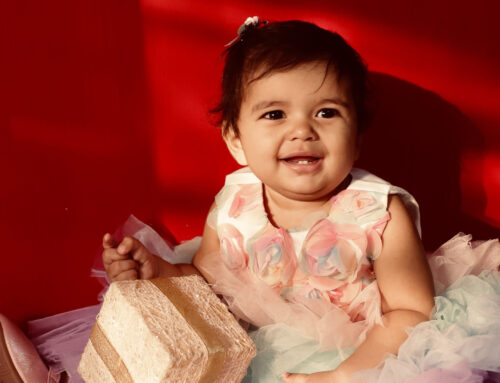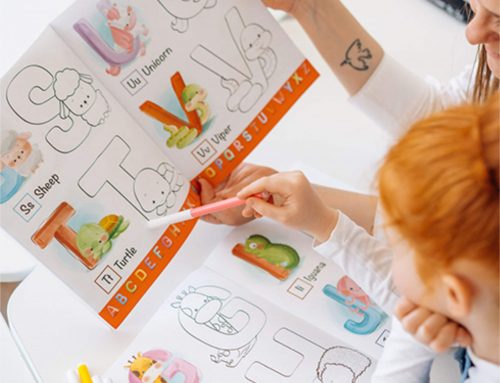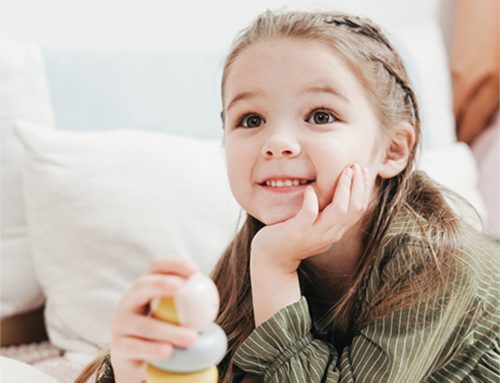It can be daunting to speak to your child about their sibling’s diagnosis. After all, what is the best and right way to explain such a complex thing as a medical diagnosis? For those who clicked on this blog post to find the “answer,” well I want to apologize because there is not one here. I invite you now to take a deep breath and process that in your mind and heart for a moment. This blog does not contain a complete lesson plan to teach a child about something so personal and potentially life altering. If only it was that easy. Instead, this blog is brimming with ideas, perspectives, and love for those of all abilities.
The sole purpose of a diagnosis is to guide medical professionals in their pursuit to provide the best treatment delivery, plan of care, and evidenced based practices. However, they only get us so far. There are so many factors we need to consider when deciding a plan of care. What are the child’s interests? What environments do they visit? Who is in their support system? And the list goes on and on. There is an immeasurable number of ways a person is defined; a diagnosis is just one piece of the puzzle. Truthfully, during team meetings, a diagnosis is rarely mentioned. Instead, we talk about a child’s strengths, their weaknesses, their accomplishments, their goals, the activities they enjoy and the ones they struggle with, and always the moments that made us smile. I suggest you do the same when discussing your child with their siblings.
This first tip cannot be stressed enough. People are capable of growing and changing. We work in the therapeutic realm because we truly and fiercely believe that. Adding the word “yet” to your vocabulary is the first favor you will do for yourself. Your brother isn’t walking yet. Your cousin doesn’t communicate clearly yet. Your sister isn’t regulated yet. This growth mindset will radiate to others when you place it front and center.
With that, the dialog must stay open and ongoing. Your child will ask questions about their sibling. Encourage those questions, praise them, exaggerate the importance of staying curious and continuing to learn. Asking questions will help allow them to process their sibling’s diagnosis and learn how to best support their family member. Remember, you do not have to be the only one answering their questions. Allow their sibling to answer some of those questions, as this will help improve their ability to communicate their own identity and needs. If this isn’t possible yet, model this skill. Include the whole family in the conversation and show them how to communicate their diagnosis and needs. Having an open conversation is a wonderful way to build a positive and supportive perspective about differences.
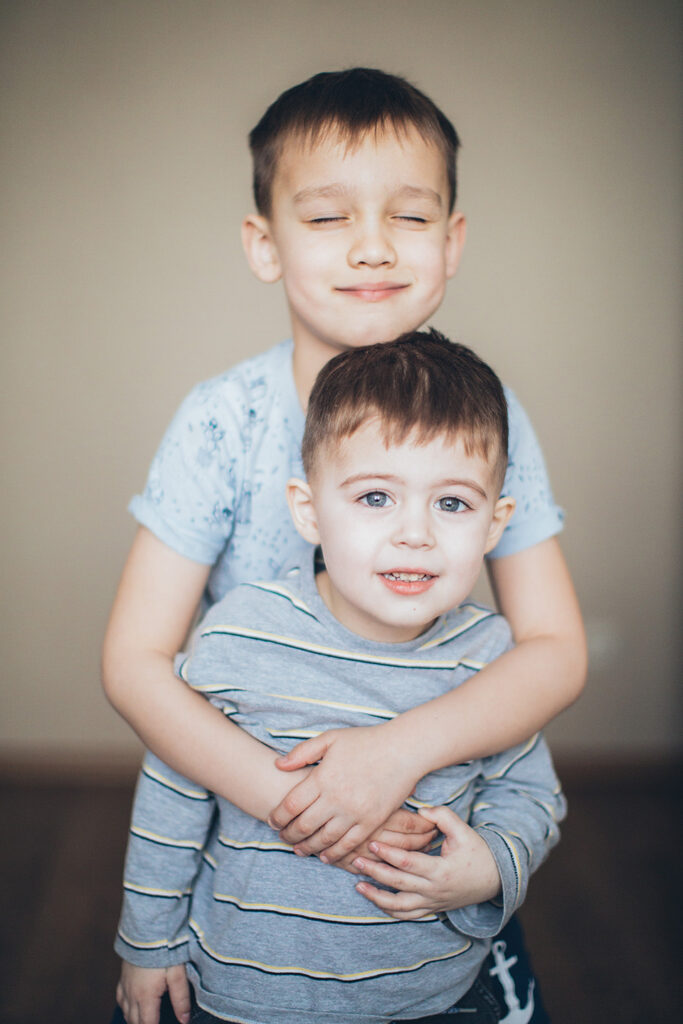
Modeling is also important when communicating frustrations, sadness, or even the boredom of waiting in the lobby for their sibling to be done with therapy. This will support your child’s ability to communicate their feelings as they arise. They are entitled to their emotions, both positive and negative, related to their sibling’s diagnosis. It is a matter of how they communicate and cope with their emotions. Chicago is full of amazing resources. These support groups are catered to allow children to process information related to their sibling’s diagnosis and needs while also developing a community of people going through similar experiences.
Siblings are also encouraged to participate in their sibling’s therapies. This offers a unique and fun way to understand what skills their sibling is working on and how their therapists are supporting them. In fact, goals for family education are always appropriate and all therapists will make time to help your family meet this goal. This can act as one of many resources to explain a diagnosis and needs to your child. Additionally, there are books, songs, videos, shows, movies, and more to help your child understand. You can find a fantastic list of resources below.
Books:
Just Because by Rebecca Elliott
Different, A Great Thing to Be by Heather Avis
A Manual for Marco by Shaila Abdullah
Autism, The Invisible Cord by Barbara Cain
Katie Can by Erin Palmer
Too Much by Jolene Gutiérrez
A Day With No Words By Tiffany Hammond
Hide and Shhh by Christina Dendy
The unstoppable Jamie by Joy Givens
Dark Cloud By Anna Lazowski
Manny’s Mood Cloud By Lourdes Ubidia
My Busy Busy Brain By Nicole Russell
The Worry Balloon By Monica Mancillas
The Curiosities By Zana Fraillon
My Brain is Magic By Prasha Sooful
I Talk Like a River By Jordan Scott
Songs:
https://blog.theautismsite.greatergood.com/cs-videos-autism-songs/
https://www.youtubekids.com/watch?v=DM2QSZioZAE
Videos:
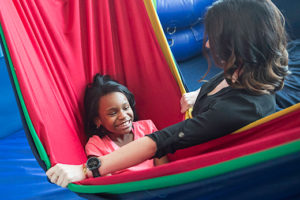
Eyas Landing is a therapy clinic with a mission to provide evidence-based and family-centered therapy services for children, adolescents, and their families. The primary goal is to deliver relationship-based interventions within the most natural environments and to empower families to reach their full potential. To achieve this goal, our highly educated, compassionate staff dedicates time and expertise to create experiences that maximize therapeutic outcomes. The strength, determination, and perseverance of our clients are evident as they succeed in therapy, and ultimately in their daily lives.
Eyas Landing offers a wide range of comprehensive services including Speech Therapy, Occupational Therapy, Physical Therapy, ABA Therapy, Social Work, Family Therapy, and Neuropsych testing. Services are provided throughout the Chicagoland area via Telehealth, In-Home, and in our state of the art clinic.
Want to learn more or you have a specific question? Feel free to connect with us here!

